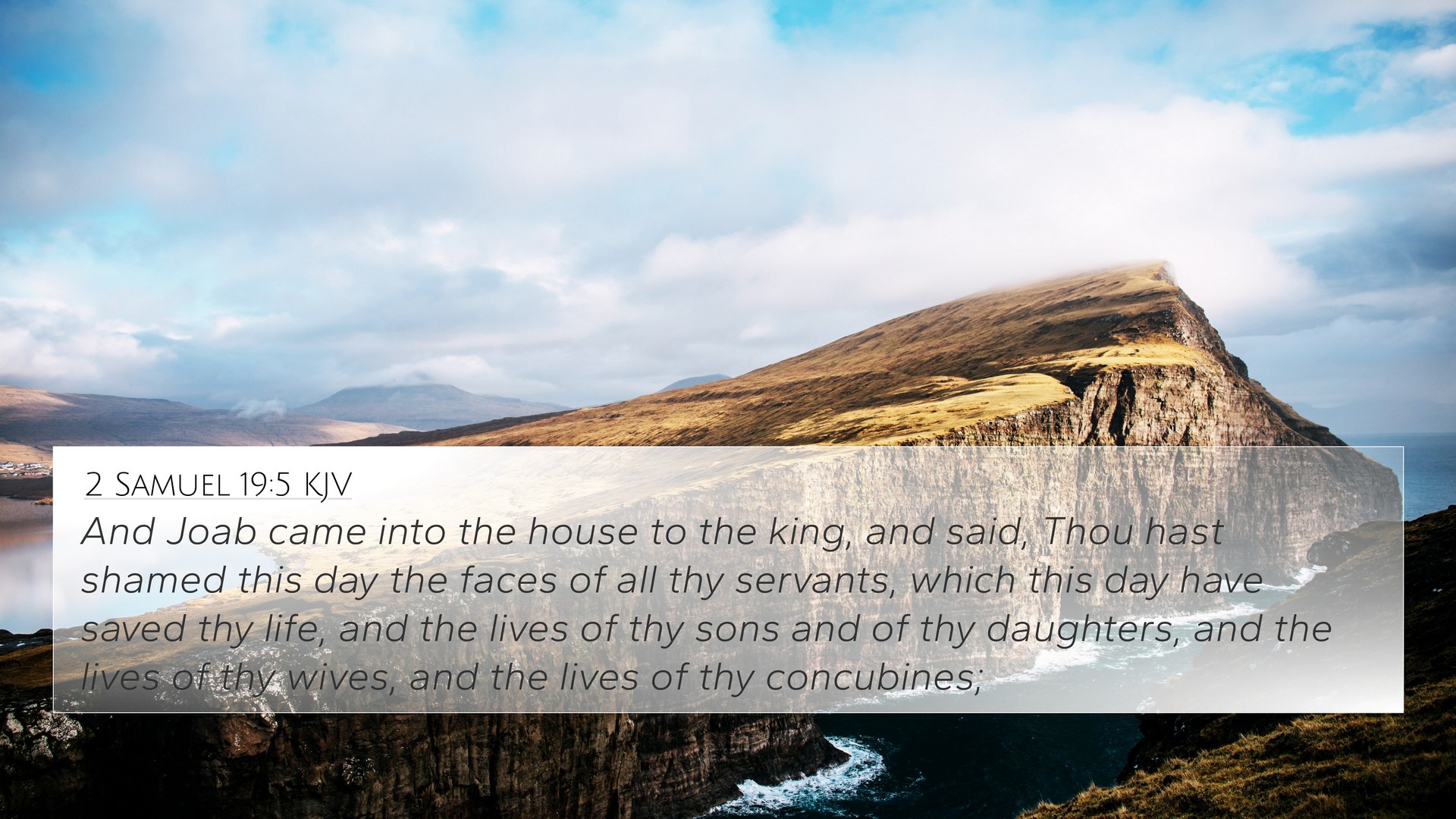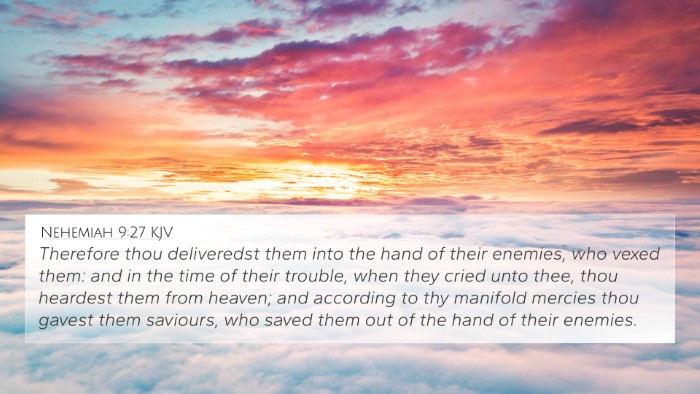Understanding 2 Samuel 19:5
The verse 2 Samuel 19:5 is a significant passage that highlights the emotional turmoil and challenges faced by King David during his reign. In this verse, we find David expressing deep sorrow and regret over the loss of his son Absalom, despite Absalom’s rebellion against him. This moment encapsulates the complex themes of love, loss, leadership, and reconciliation, which can be explored through various public domain commentaries.
Verse Text
2 Samuel 19:5 (KJV): "And Joab came into the house to the king, and said, Thou hast shamed this day the faces of all thy servants, which this day have saved thy life, and the lives of thy sons and of thy daughters, and the lives of thy wives, and the lives of thy concubines."
Commentary Insights
-
Matthew Henry's Commentary
Matthew Henry points out that David's mourning for Absalom, who sought to overthrow him, was both a testament to a father's love and a sign of improper priorities. David's excessive grief resulted in a public display that shamed his supporters. Henry emphasizes that leaders should balance their personal emotions with the public duties they owe to their followers and the kingdom.
-
Albert Barnes' Notes on the Bible
Barnes notes that Joab’s rebuke of David was a necessary correction aimed at guiding the king back to his responsibilities. According to Barnes, the display of overwhelming grief could undermine David's authority. The tension between David's paternal instincts and his role as king reveals the duality of human emotion and leadership.
-
Adam Clarke's Commentary
Adam Clarke interprets this verse as a crucial moment where the role of leadership is emphasized. He suggests that Joab's admonition reflects the need for leaders to show strength, particularly in times of distress. Clarke argues that mourning must be weighed against the need for governance and unity among the people.
Thematic Analysis and Connections
This passage can be connected with several key themes throughout Scripture, particularly those dealing with parental love, leadership, and the struggle between personal and communal responsibilities. The themes of forgiveness, rebellion, and the complexities of familial relationships are prevalent. Here are several relevant Bible verses that can be cross-referenced:
- 1 Samuel 15:11 - God's regret over Saul, paralleling David's regret over Absalom.
- 2 Samuel 12:21-23 - David's prior grief for the death of his child with Bathsheba.
- Luke 15:20-24 - The parable of the Prodigal Son reflects similar themes of parental love and forgiveness.
- Matthew 5:4 - "Blessed are they that mourn," relating to David's sorrow.
- Psalm 38:4-6 - David's personal lamentation reflecting his pain and regret.
- Proverbs 4:23 - The necessity of protecting one’s heart, similar to David’s emotional turmoil.
- John 11:35 - Jesus weeping for Lazarus, illustrating the depth of human emotion.
Conclusion
In conclusion, 2 Samuel 19:5 serves as a poignant reminder of the challenges leaders face when personal emotions collide with public responsibilities. It encourages readers to reflect on the implications of their emotional expressions and the expectations of their roles. By examining this verse alongside other relevant scripture, one gains a richer understanding of its profound themes and contexts.
Through Bible verse cross-references and thematic Bible verse connections, one can see how 2 Samuel 19:5 fits into the larger narrative of Scripture, revealing insights that apply to both today’s leaders and individuals grappling with personal loss and public duty.





